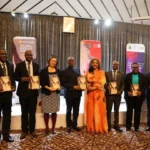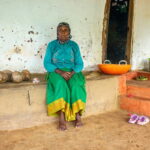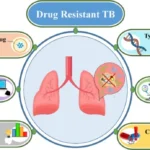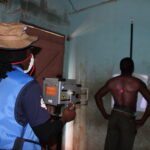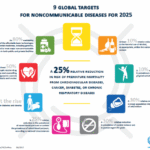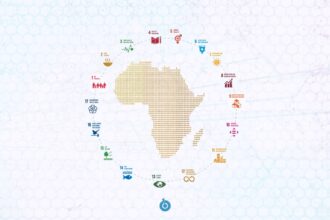By Conrad Mwanawashe
ZIMBABWE has launched its OpenSDG Data Portal which offers a unified, user-friendly interface, downloadable datasets, data stories, and mappings, leveraging data to drive development, fostering transparency, and empowering institutions and citizens alike.
By investing in such systems, Zimbabwe is not only advancing national priorities but contributing meaningfully to the global movement to rescue the SDGs and build a better future for generations to come, according to Edward Kallon, UN Resident and Humanitarian Coordinator while officiating at the official launch of the OpenSDG Data Portal.
Mr Kallon added that in alignment with the UN Secretary-General’s vision to rescue the SDGs, the OpenSDG Data Portal will be an essential tool in driving progress across the six critical transitions identified as accelerators of sustainable development. These include food systems transformation; energy access; digital connectivity; education and learning; jobs and social protection; and climate change and biodiversity.
“At the very heart of sustainable development lies data. Data that is credible, disaggregated, timely, and accessible and data that helps us assess progress and identify opportunities and areas for improvement.
“Globally, we are at a critical juncture. The 2030 Agenda is halfway through its implementation, yet according to the 2024 SDG Progress Report, only 17% of the 135 assessed targets are on track to be achieved by 2030, while nearly half (48%) are moderately or severely off-course. Worryingly, 17% of SDG targets have regressed, falling below baseline levels and 18% indicate stagnation.
“This reality signals an urgent call to action and makes the launch of Zimbabwe’s OpenSDG Data Portal both timely and essential. It is through platforms like this that we can identify where we are succeeding, where we are falling short, and, most importantly, how we can respond with speed and precision to accelerate progress and deliver on the promise of the 2030 Agenda,” said Mr Kallon.
A cornerstone of Zimbabwe’s data ecosystem is the complementary role of Voluntary National Reviews (VNRs) and Voluntary Local Reviews (VLRs).
VNRs serve as a comprehensive, state-led report to the UN High-Level Political Forum on SDG progress and lessons learned.
To date, Zimbabwe produced 3 Voluntary National Reviews (VNRs) and 48 Voluntary Local Reviews (VLRs) at sub‑national levels following the implementation of the 2020 Cabinet Directive, directing all local authorities to produce VLRs, following 2 pilot VLRs by Harare and Victoria Falls.
VLRs illuminate local realities and strengthen SDG localisation and enrich our national narrative by generating granular, community-level evidence that highlights local innovation, disparities, and civic involvement.
These local insights then feed upward into our VNRs, enabling a more nuanced national reporting process that reflects real territorial diversity and bottom‑up feedback.
Together, the VLR–VNR continuum fosters policy coherence, better alignment of resources, and more effective SDG achievement
 “The last few years have reminded us that without real-time and interoperable data systems; spanning spatial, economic, social, and environmental dimensions; we cannot steer national development effectively. This portal addresses that gap,” said Dr Martin Rushwaya, Chief Secretary to the President and Cabinet, in remarks read on his behalf by Public Service Labour and Social Welfare Permanent Secretary Mr Simon Masanga.
“The last few years have reminded us that without real-time and interoperable data systems; spanning spatial, economic, social, and environmental dimensions; we cannot steer national development effectively. This portal addresses that gap,” said Dr Martin Rushwaya, Chief Secretary to the President and Cabinet, in remarks read on his behalf by Public Service Labour and Social Welfare Permanent Secretary Mr Simon Masanga.
“Our charge is to collaborate in harnessing data for targeted policies, inclusive growth, and renewed investment aimed at “leaving no one behind.”
“Looking ahead, Zimbabwe’s roadmap is clear. First, we will ensure regular, integrity-assured data flows into the portal through strong governance and interoperability. Second, we will invest heavily in capacity-building among policy-makers, researchers, journalists, civil society, and community leaders, enabling them to interpret and leverage data effectively.
“Third, we will strengthen the VLR–VNR feedback loop: local data insights will directly inform national reporting, which in turn will guide policy and inspire deeper community-level action.
“Lastly, we will emphasize inclusive participation, inviting persons with disabilities and marginalised groups to co‑produce data, monitor outcomes, and shape development priorities,” said Dr Rushwaya.
When countries like the UAE launched their SDG Data Hubs, they created transformative tools; but more importantly, they built ecosystems of accountability and innovation. Zimbabwe’s OpenSDG portal aspires to follow that same path: serving as a national asset for transparency, evidence-based decision-making, and citizen engagement.
Director-General of ZIMSTAT (Zimbabwe National Statistics Agency), Tafadzwa Bandama, said the OpenSDG platform will serve not only as a repository of indicators and metadata but also as a symbol of transparency and collaboration.
“It will offer a centralised digital space where policymakers, researchers, civil society, development partners, and the public can access up-to-date data on Zimbabwe’s progress toward the SDGs. It stands as a key step in strengthening evidence-based decision-making at all levels,” said Ms Bandama.


